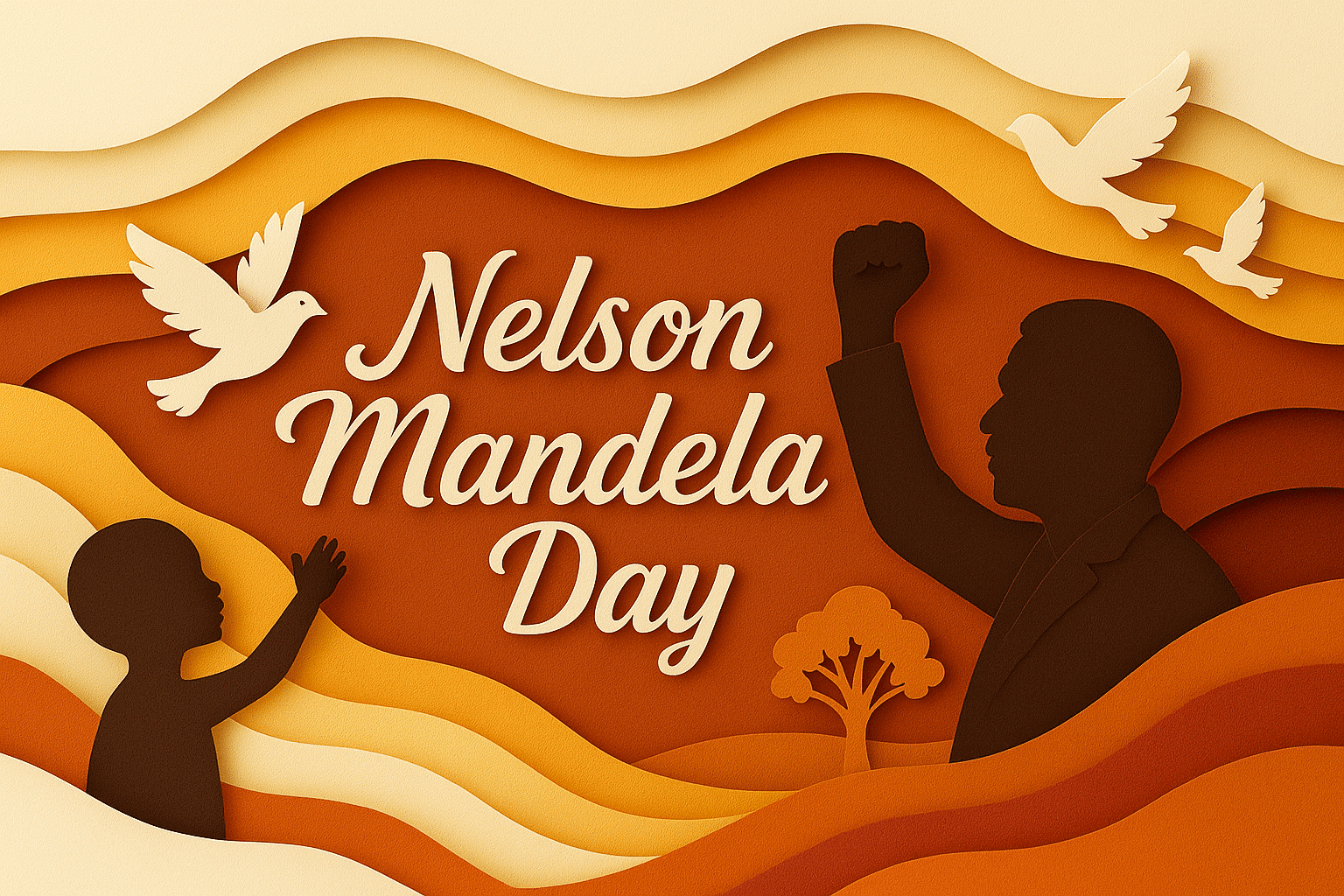What is Nelson Mandela International Day?
Nelson Mandela International Day is observed annually on July 18, commemorating the birthday of Nelson Mandela, the former President of South Africa and a global symbol of peace and reconciliation. The day was officially declared by the United Nations in November 2009, with the first UN Mandela Day held on July 18, 2010. It serves as a global call to action for individuals to recognize their ability to have a positive effect on others around them. The day is not meant as a public holiday but as a day to honor Mandela’s legacy through volunteering and community service. It emphasizes the idea that each individual has the power to transform the world.
The initiative encourages people to dedicate 67 minutes of their time to helping others, representing the 67 years Mandela spent fighting for social justice. Activities can range from supporting local charities to community projects, reflecting the spirit of selfless service that Mandela embodied. The day aims to inspire individuals to take small steps towards making a big difference in their communities. It is a reminder that everyone has the capacity to effect change. Through collective efforts, the day seeks to build a global movement for good.
History and Origin
The concept of Nelson Mandela International Day was first introduced by the Nelson Mandela Foundation and the 46664 campaign on April 27, 2009. They invited the global community to join them in support of an official Mandela Day. The United Nations General Assembly formally declared July 18 as Nelson Mandela International Day in November 2009. This declaration was a recognition of Mandela’s contribution to the culture of peace and freedom. The first UN Mandela Day was held on July 18, 2010.
The day was inspired by Mandela’s life and his 67 years of public service, including 27 years in prison. It was established to honor his legacy and promote community service and social justice. The initiative encourages individuals to take action and inspire change in their communities. It is a day to reflect on Mandela’s values and principles. The day serves as a reminder of the power of collective action.
In 2014, the UN General Assembly established the Nelson Mandela Prize, awarded every five years to individuals who have dedicated their lives to the service of humanity. The prize recognizes those who have made significant contributions to the promotion of reconciliation and social cohesion. It is a continuation of Mandela’s legacy and commitment to human rights. The prize serves as an inspiration for others to follow in his footsteps. It underscores the importance of service to humanity.
Who participates in Nelson Mandela International Day?
- Individuals: Participate by dedicating 67 minutes to community service or helping others.
- Organizations: Organize events and activities that promote social justice and community development.
- Educational institutions: Engage students in projects that reflect Mandela’s values and teachings.
- Government bodies: Support initiatives and programs that align with the day’s objectives.
- Non-profit organizations: Collaborate with communities to implement sustainable development projects.
Slogans and Themes
Each year, Nelson Mandela International Day adopts a specific theme to focus global attention on particular issues. These themes are designed to inspire individuals and organizations to take action in areas that reflect Mandela’s legacy. Past themes have included “Take Action, Inspire Change” and “Make Every Day a Mandela Day.” The themes serve as a rallying call for people to contribute to building a better world. They emphasize the importance of individual responsibility in effecting positive change.
Colors, Symbols and Patterns
Colors
- Green: Symbolizes growth and harmony.
- Gold: Represents wisdom and generosity.
- Black: Reflects strength and resilience.
Symbols
- Nelson Mandela’s silhouette: Represents his enduring legacy.
- The number 67: Signifies the years Mandela dedicated to public service.
- Hands: Symbolize unity and collective action.
Patterns
- African motifs: Reflect the cultural heritage and diversity of the continent.
- Mandela’s signature: Used in branding to signify authenticity and commitment.
- Dove imagery: Represents peace and reconciliation.
Most Used Hashtags
- #MandelaDay
- #67Minutes
- #TakeAction
- #InspireChange
- #NelsonMandelaInternationalDay
How do you celebrate Nelson Mandela International Day?
- Volunteer: Dedicate 67 minutes to community service or helping someone in need.
- Educate: Learn about Mandela’s life and teachings, and share this knowledge with others.
- Donate: Support charities and organizations that align with Mandela’s values.
- Advocate: Raise awareness about social justice issues in your community.
- Reflect: Take time to consider how you can contribute to positive change in the world.
Why is Nelson Mandela International Day important?
Nelson Mandela International Day serves as a reminder of the power of individual actions to effect change. It encourages people to take responsibility for making the world a better place. The day honors Mandela’s legacy by promoting peace, reconciliation, and social justice. It inspires individuals to reflect on their role in society and to take action towards positive change. The day fosters a sense of global solidarity and shared humanity.
By participating in Nelson Mandela International Day, individuals and organizations contribute to building a more equitable and compassionate world. The day emphasizes the importance of service to others and the impact of collective action. It serves as a catalyst for ongoing efforts to address social and economic inequalities. The day reinforces the belief that everyone has the ability to make a difference. It is a celebration of the enduring legacy of Nelson Mandela and his commitment to humanity.
Features
- Peace and Human Rights
